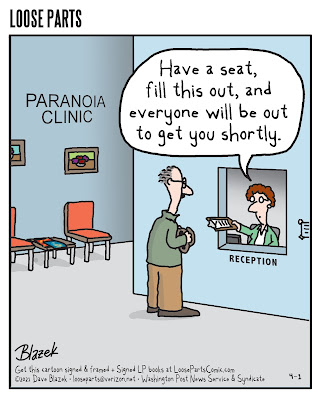And inflation will remain high, very highThis was published a while ago. I forgot to link it here. Their summary: Economists have proposed two main theories to explain the recent spike in prices. Progressives have attributed the rise in inflation to corporate greed and have suggested price controls in response. Other economists have turned back to the New Consensus in Macroeconomics that arose in the 1970s in response to steep inflation blamed on the large Keynesian fiscal expansion of the preceding decades. Matías Vernengo writes that neither camp has correctly diagnosed the problems with current inflation. Proponents of Greedflation overlook the price stability of the last few decades even as market concentration increased. On the other hand, advocates of the New Consensus similarly
Topics:
Matias Vernengo considers the following as important: Greedflation, inflation, New Consensus
This could be interesting, too:
Matias Vernengo writes Serrano, Summa and Marins on Inflation, and Monetary Policy
Angry Bear writes Voters Blame Biden and Harris for Inflation
Lars Pålsson Syll writes How inequality causes financial crises
Matias Vernengo writes Inflation, real wages, and the election results
This was published a while ago. I forgot to link it here. Their summary:
Economists have proposed two main theories to explain the recent spike in prices. Progressives have attributed the rise in inflation to corporate greed and have suggested price controls in response. Other economists have turned back to the New Consensus in Macroeconomics that arose in the 1970s in response to steep inflation blamed on the large Keynesian fiscal expansion of the preceding decades. Matías Vernengo writes that neither camp has correctly diagnosed the problems with current inflation. Proponents of Greedflation overlook the price stability of the last few decades even as market concentration increased. On the other hand, advocates of the New Consensus similarly forget their history and the commodity shocks and price-wage spiral that were the real culprit for inflation in the 1970s.
From my conclusion:
The inflation acceleration of the 1970s did not show that Keynesian policies were inefficient or had caused the acceleration of prices. As noted by James Tobin back then, inflation resulted from the oil shocks and the price-wage spiral. But inflation reinforced the social problems that led to the collapse of the old New Deal coalition and the Keynesian Consensus, ushering the Conservative Revolution and the New Consensus in Macroeconomics. The Pandemic inflation acceleration has undermined the revival of Keynesian ideas, and the revision of the New Consensus model that was under course. Instead of the concern with secular stagnation, we are back to inflation paranoia.

